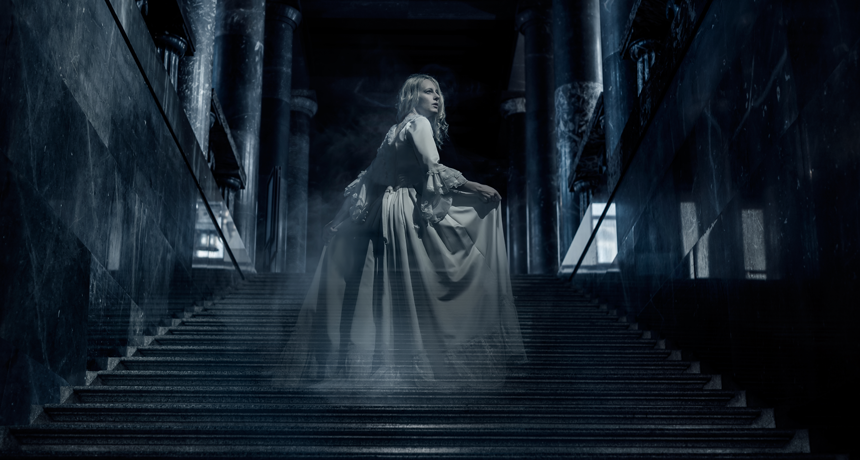Theories on Ghosts and Why People Believe in Them
The idea of ghosts has fascinated humanity for centuries, intertwining folklore, religion, psychology, and science. While opinions differ widely about their existence, many people continue to report encounters, leading to debates about the nature of these phenomena. Understanding why people believe in ghosts requires an exploration of cultural, psychological, and scientific perspectives. 
This article delves into various theories about ghosts and the reasons behind the enduring belief in these spectral entities.
What Are Ghosts? Defining the Phenomenon
Ghosts are often described as the disembodied spirits of the deceased, lingering in the physical world due to unfinished business, emotional attachments, or tragic deaths. These entities are commonly portrayed as transparent figures, audible voices, or physical disturbances, such as moving objects. While ghost stories vary across cultures, they share common themes of death, the afterlife, and unresolved emotions.
Cultural Perspectives on Ghosts
Western Views
In Western traditions, ghosts are typically linked to the Christian concept of an afterlife. The idea of purgatory, for instance, supports the belief that spirits may remain earthbound until they find peace.
Eastern Beliefs
In many Eastern cultures, such as in China or Japan, ghosts are viewed as ancestors who demand respect and proper rituals. The concept of “hungry ghosts” reflects the belief that spirits in distress may return to seek aid from the living.
Indigenous Interpretations
Indigenous communities often see spirits as protectors, guides, or even harbingers of change. For example, Native American beliefs often incorporate spirits as integral parts of the natural world.
These cultural narratives play a significant role in shaping how societies perceive and respond to ghostly phenomena.
Psychological Explanations for Ghost Beliefs
The human mind’s inclination to find patterns and attribute meaning to unexplained events contributes significantly to ghost beliefs. Several psychological theories explain why people might perceive or believe in spirits:
Pareidolia and Apophenia
Pareidolia refers to the brain’s tendency to perceive familiar patterns, such as faces, in random stimuli. A shadow or a reflection might easily be mistaken for a ghostly figure.
Apophenia extends this concept to finding connections between unrelated events, such as associating a cold draft with a deceased loved one’s presence.
Fear of Death and Mortality
Ghost beliefs can serve as coping mechanisms for the fear of death. The notion that loved ones’ spirits remain accessible offers comfort and alleviates existential anxiety.
The belief in ghosts often reinforces ideas of an afterlife, providing a sense of continuity beyond physical death.
Trauma and Grief
Encounters with ghosts are frequently reported by individuals processing loss. Grieving individuals may interpret dreams, sensations, or even coincidences as interactions with the deceased.
Psychological studies suggest that such experiences may arise from the brain’s efforts to reconcile the absence of a loved one.
Scientific Theories: Can Ghosts Be Explained?
Scientific inquiry into ghost phenomena has yielded intriguing theories, though none conclusively confirm the existence of spirits. Instead, many occurrences attributed to ghosts can be explained through natural phenomena or human perception errors.
Infrasound
Low-frequency sounds, known as infrasound, are imperceptible to the human ear but can cause physical effects, such as nausea, unease, and hallucinations.
In haunted locations, environmental factors like wind or machinery may produce infrasound, contributing to reports of ghostly sensations.
Electromagnetic Fields (EMFs)
Studies suggest that exposure to EMFs can affect the brain, leading to sensations of being watched, dizziness, or even hallucinations.
Faulty wiring or high EMF emissions in old buildings are often cited as explanations for ghost sightings.
Sleep Paralysis
A well-documented condition, sleep paralysis occurs when a person awakens but is temporarily unable to move. This state is often accompanied by vivid hallucinations, such as seeing shadowy figures.
Cultural interpretations of sleep paralysis experiences frequently attribute them to ghosts or malevolent spirits.
Memory and Suggestion
Human memory is malleable, and suggestive environments can amplify ghostly experiences. For example, visiting a purportedly haunted house may lead individuals to interpret ordinary events as supernatural.
Studies on group psychology show that shared beliefs and expectations can reinforce perceived paranormal experiences among witnesses.
Why Do People Continue to Believe?
Despite scientific advancements, belief in ghosts persists, often due to cultural reinforcement, personal experiences, and the allure of the unknown. Understanding the reasons behind this enduring belief requires examining broader societal and personal influences.
Media and Pop Culture
Ghost stories, movies, and television shows often dramatize paranormal encounters, shaping public perception and fueling curiosity.
Reality shows featuring ghost hunters further popularize the notion of haunted locations, lending credibility to anecdotal evidence.
Religion and Spirituality
Many religious traditions incorporate beliefs in spirits, angels, or demons, intertwining the idea of ghosts with faith.
Spiritual practices such as seances, mediumship, or ancestor worship keep the concept of ghostly communication alive.
Personal Testimonies
Anecdotal accounts of ghost encounters carry significant weight, as personal experiences often feel more credible than scientific skepticism.
Social validation and shared narratives strengthen belief systems, making ghost stories a deeply personal and communal phenomenon.
Conclusion
The belief in ghosts endures because it satisfies emotional, psychological, and cultural needs. Whether viewed as spirits of the dead, manifestations of the mind, or misunderstood natural phenomena, ghosts continue to captivate human imagination. While science may offer explanations for many ghostly experiences, the allure of the unknown ensures that the debate about their existence will persist.
Sources:
- National Geographic: Are Ghosts Real?
- Psychology Today: Why Do People Believe in Ghosts?
- BBC: The Science of Ghosts
- Live Science: What Are Ghosts?
- Scientific American: Paranormal Experiences and the Brain
- Smithsonian Magazine: Ghosts in History and Culture
- American Psychological Association: Coping with Grief
- The Atlantic: Haunted Houses and the Brain
- Journal of Sleep Research: Sleep Paralysis and Hallucinations
- Oxford University Press: Paranormal Beliefs and Personality



































